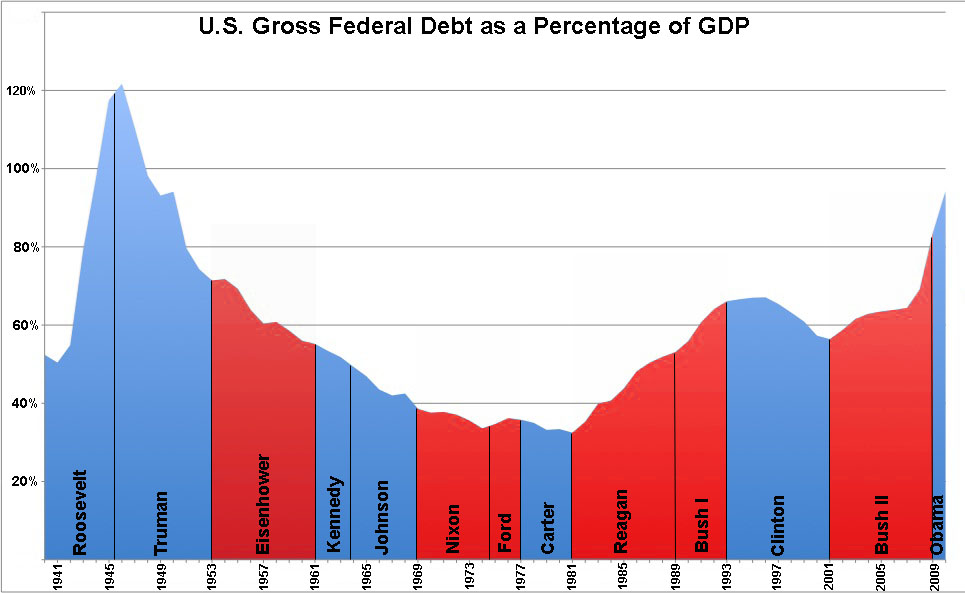Flyer_PE
Jr. PE / Sr. Company Pilot
^It's an interesting dynamic. Reagan wanted to spend less than congress did. Those deficits also get blamed on the tax cuts at the time but actual revenue into the treasury doubled between the time those cuts were instituted and the end of Reagan's second term.
Clinton wanted to spend more than congress did following the '94 elections. The combination of a fantastic economy and some semblance of fiscal restraint in the '90s brought the budget into balance.
Once Bush got into office, he had half of the equation correct in that lowering marginal tax rates will encourage economic growth. The receipts to the treasury were actually higher following enactment of the lower rates than they were under Clinton. The half he didn't get right was the spending. I would say that he and his party spent money like drunken sailors but that would be a disservice to drunken sailors.
The problem with spending at these levels is that running deficits actually affects the economy much the same as higher taxes. One of the reasons the economy is still trudging along at 1.5-2.0% growth is that businesses look down range and know instinctively that all this borrowed money will have to be paid back through markedly higher tax rates down the road. All of their incentives are for taking defensive positions. Add to that the fact that the fed seems to think another round of QE (money printing/currency devaluation) will help with unemployment even though following QE1 and QE2, we've added 5 trillion to the debt and we still have between 8.3% and 15% unemployment depending on if you use the U3 or U6 number. The fed chairman actually stated the other day that through spending 2 trillion dollars, 2 million jobs were created. Somehow I don't think 1 million/job is anything to brag about.
Clinton wanted to spend more than congress did following the '94 elections. The combination of a fantastic economy and some semblance of fiscal restraint in the '90s brought the budget into balance.
Once Bush got into office, he had half of the equation correct in that lowering marginal tax rates will encourage economic growth. The receipts to the treasury were actually higher following enactment of the lower rates than they were under Clinton. The half he didn't get right was the spending. I would say that he and his party spent money like drunken sailors but that would be a disservice to drunken sailors.
The problem with spending at these levels is that running deficits actually affects the economy much the same as higher taxes. One of the reasons the economy is still trudging along at 1.5-2.0% growth is that businesses look down range and know instinctively that all this borrowed money will have to be paid back through markedly higher tax rates down the road. All of their incentives are for taking defensive positions. Add to that the fact that the fed seems to think another round of QE (money printing/currency devaluation) will help with unemployment even though following QE1 and QE2, we've added 5 trillion to the debt and we still have between 8.3% and 15% unemployment depending on if you use the U3 or U6 number. The fed chairman actually stated the other day that through spending 2 trillion dollars, 2 million jobs were created. Somehow I don't think 1 million/job is anything to brag about.




